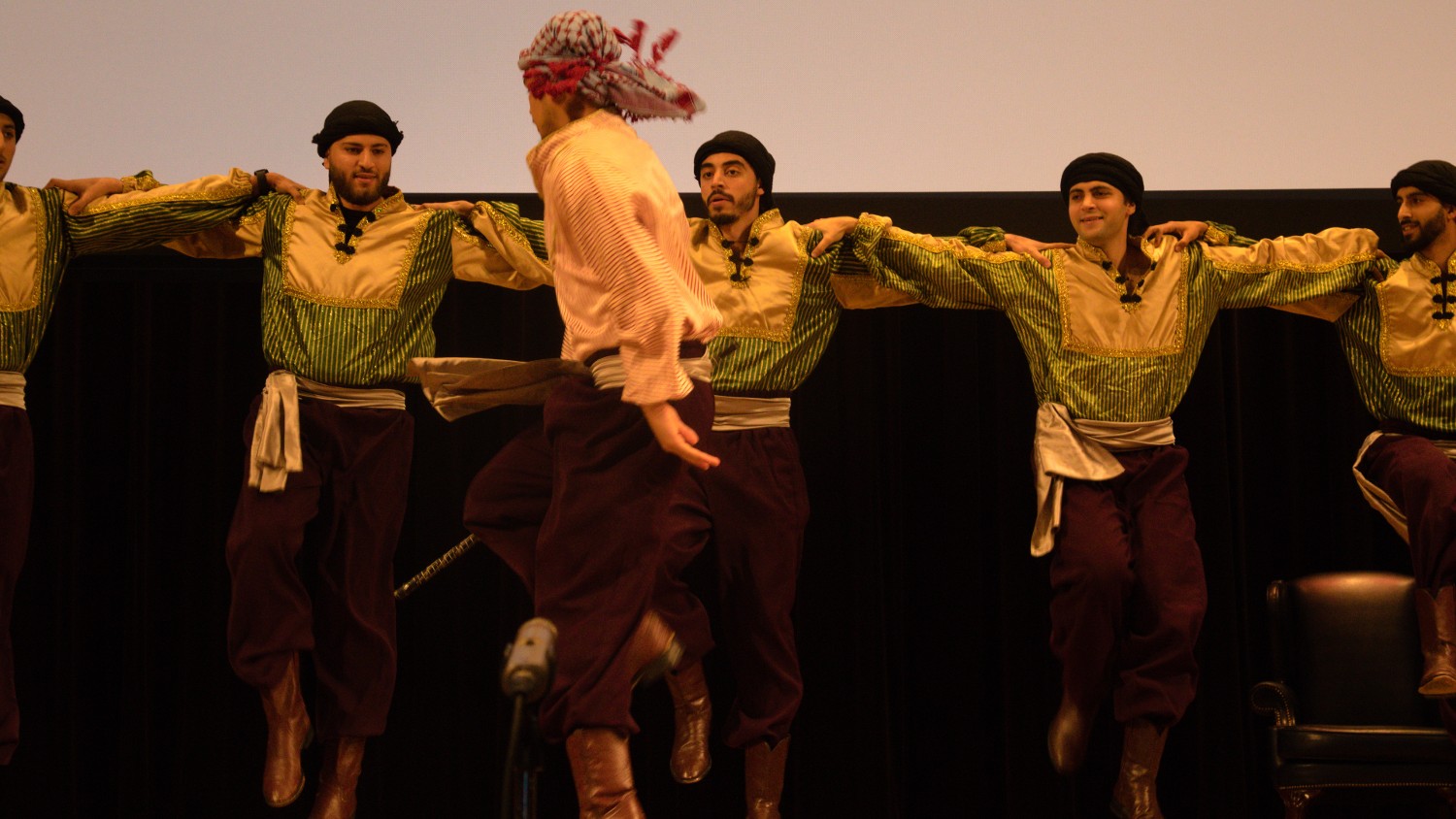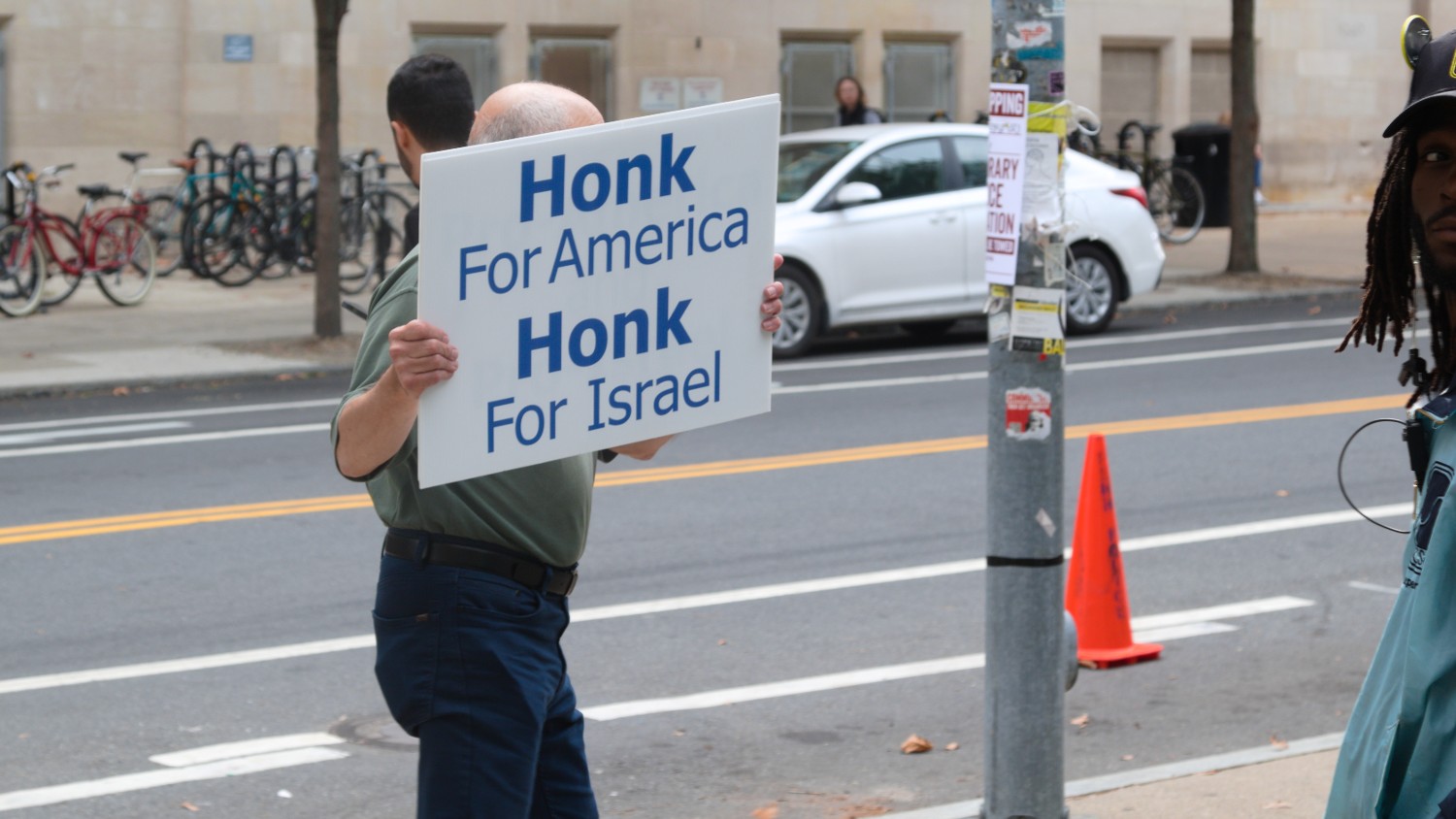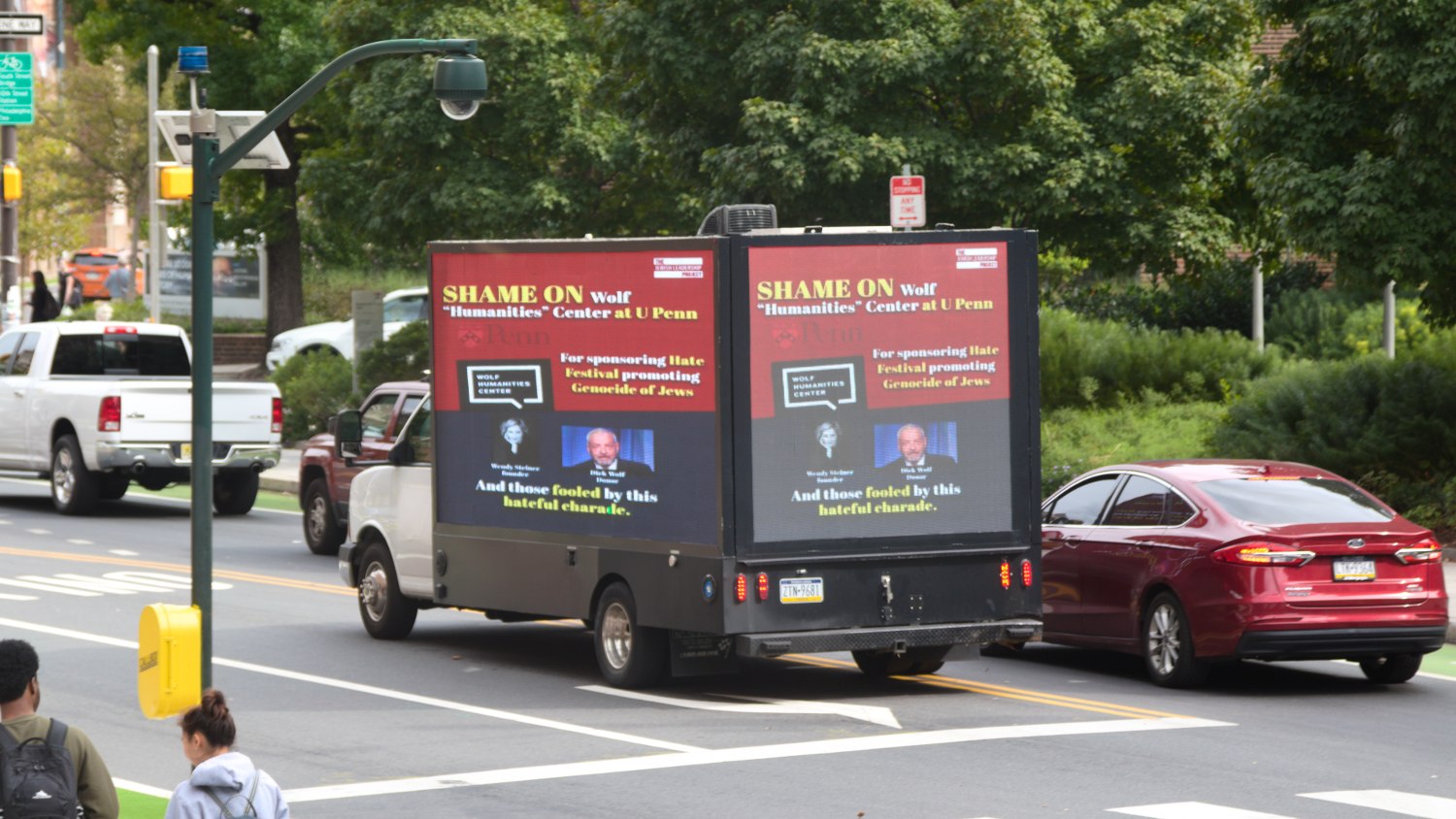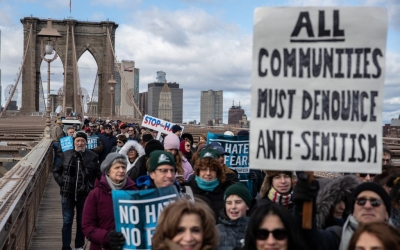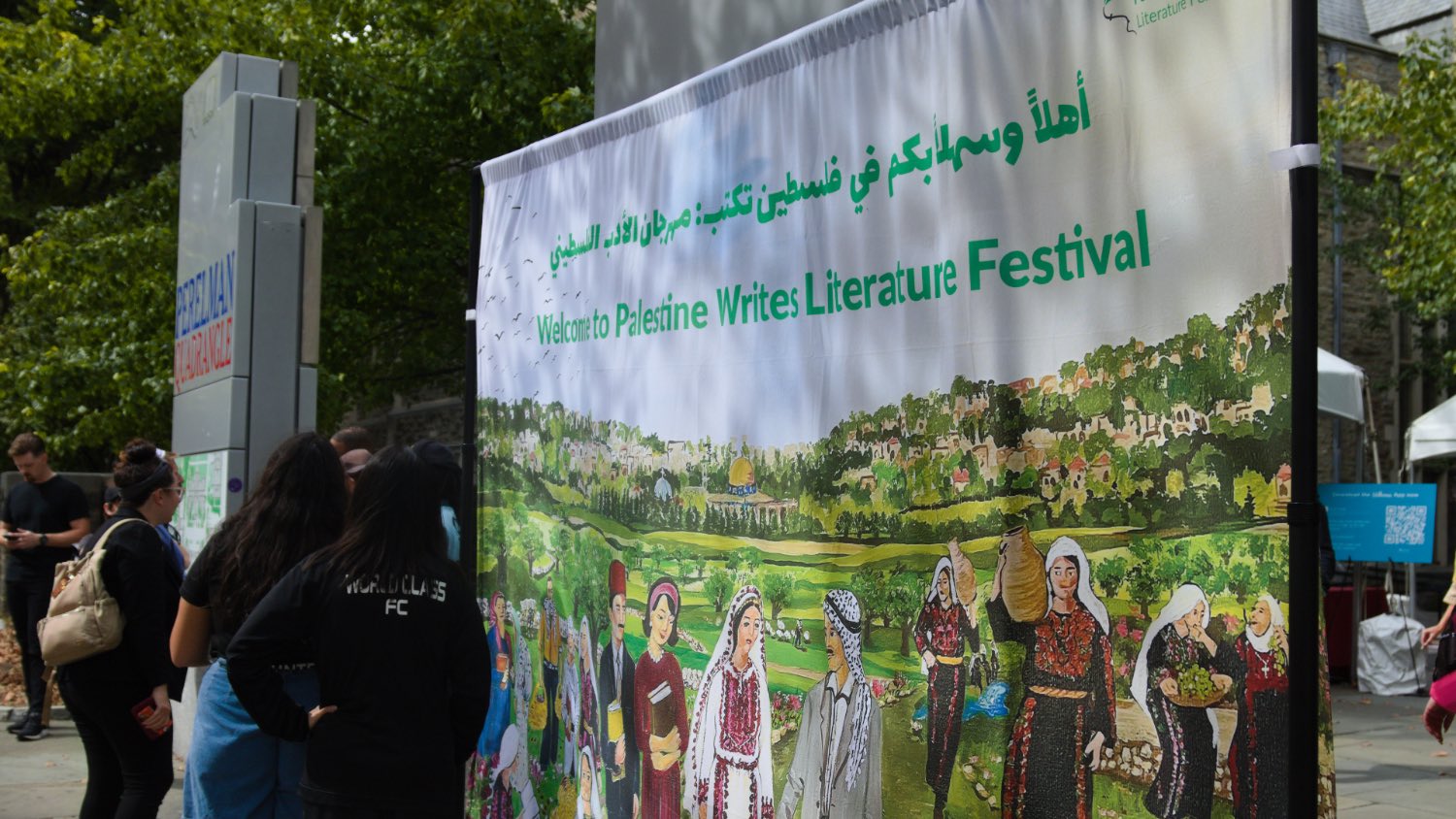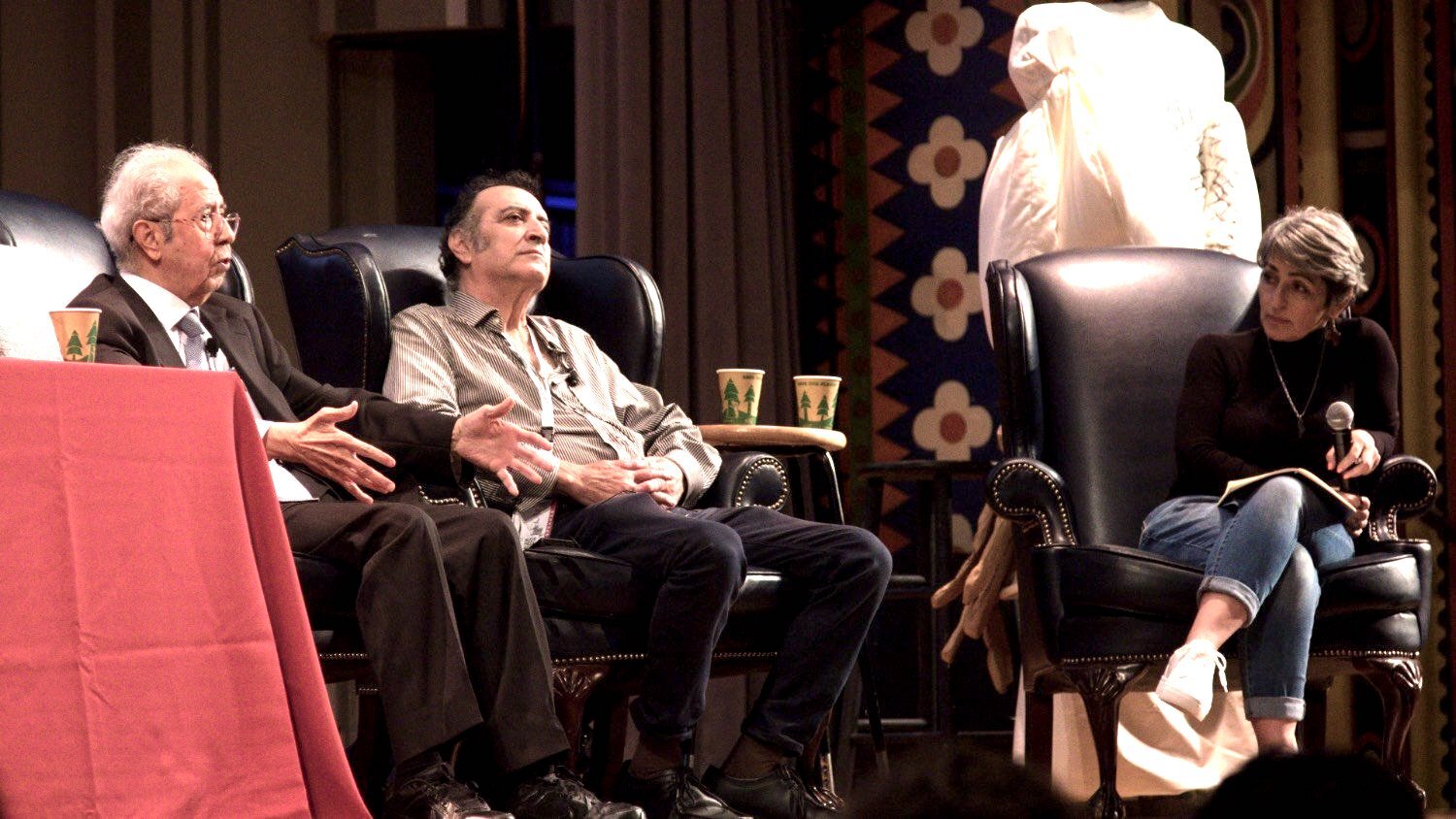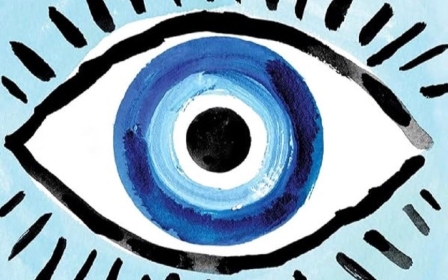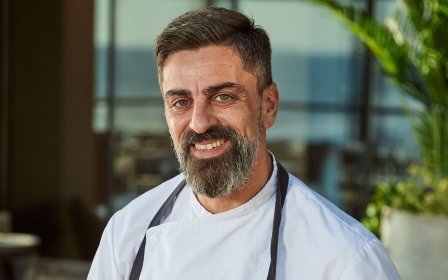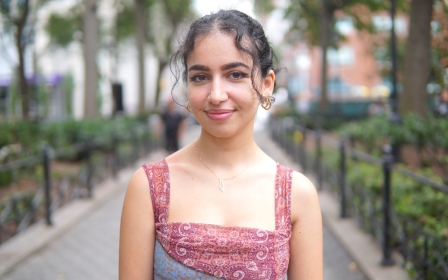Palestine Writes: First of its kind literature festival in US exceeds expectations amid threats
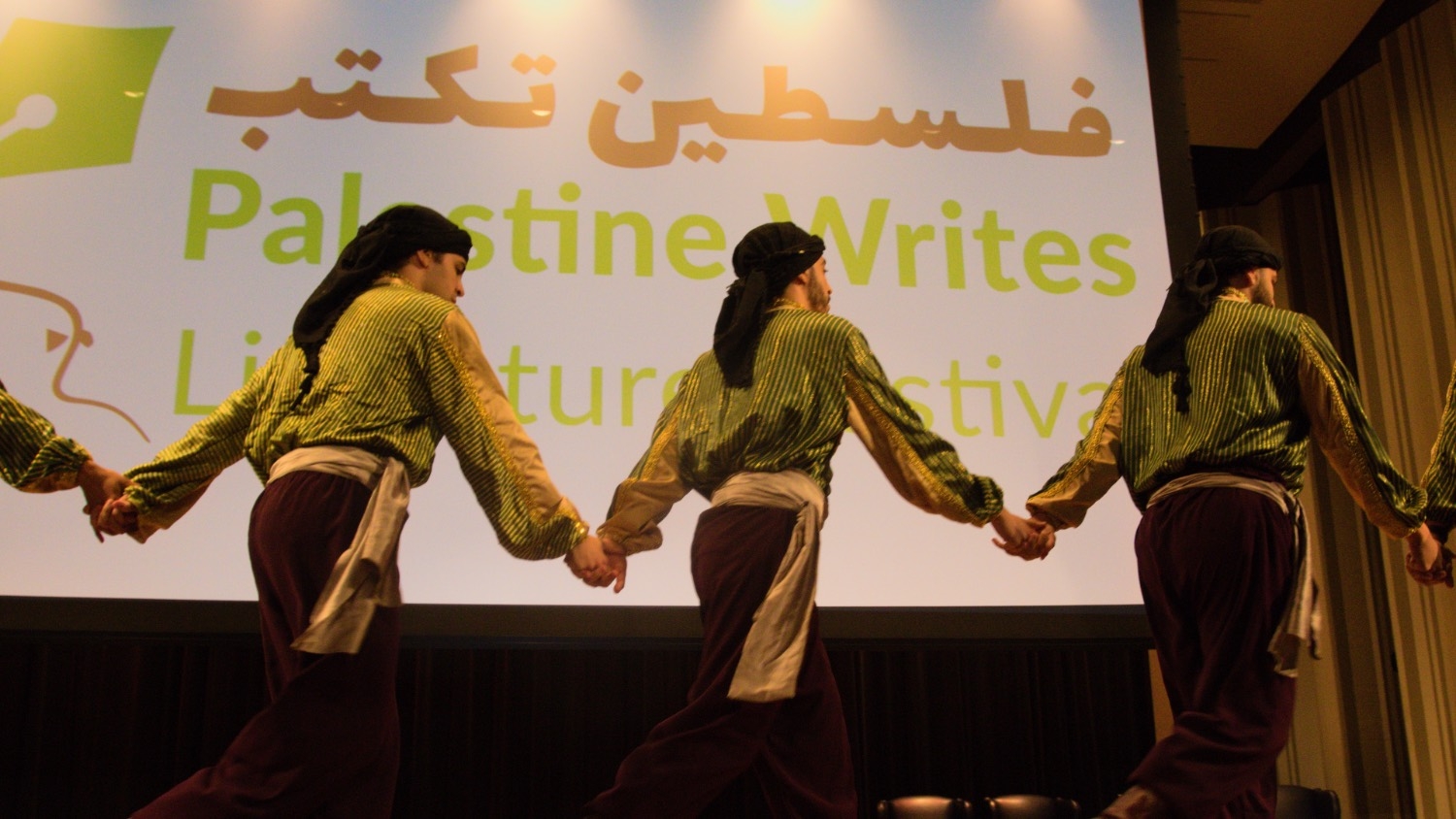
Despite a barrage of eleventh-hour attacks from pro-Israel and Zionist groups, the Palestine Writes Literature Festival took place in Philadelphia over the weekend, bringing together more than 1,500 people to celebrate the literary works of Palestinians past and present.
The mood of the festival as it began on Friday at the University of Pennsylvania was tense, as organisers readied the registration booths while several pro-Israel demonstrators arrived outside with posters asking cars driving by to “honk for Israel”, and a truck with a digital billboard was driving around with images of some of the festival's speakers, labelling them as antisemites.
But the attacks are not foreign to many of the organisers who say that the nature of being Palestinian often leads to character attacks from pro-Israel groups.
Excitement filled the air of the auditorium, whose seats were all taken by attendees waiting in anticipation for the festival to begin.
The festival is the first in-person event of its kind to take place in North America. Organisers initially planned for a conference in 2020 in New York City, but ultimately it was forced online due to the Covid-19 pandemic which shut down much of the world that year.
New MEE newsletter: Jerusalem Dispatch
Sign up to get the latest insights and analysis on Israel-Palestine, alongside Turkey Unpacked and other MEE newsletters
Three years later, the dream of bringing together Palestinian literaries from all over the world came to life at the university from Friday through Sunday.
“In the spirit of Malcolm X, welcome to those who have come to surveil and monitor us. You’re welcome as long as you do not disrupt or sabotage any part of this event,” Susan Abulhawa, executive director of the festival, said in her opening remarks to a resounding applause from the audience.
Poets, authors, visual artists, academics, and all sorts of intersections in between were in attendance - from various one-on-one book talks with authors to a talk laying out a framework on how to execute a right of return for all Palestinians to the homes they fled and lost during the Nakba.
A common issue throughout the festival was that there were not enough chairs to seat everyone who wanted to attend the sessions.
"The festival really exceeded my expectations in terms of what it means to Palestinians," an exhausted Abulhawa told MEE in an interview after the second full day of the festival.
"One of the things we wanted to accomplish with this festival was to gather Palestinians in one place. Palestinian intellectuals and writers from all parts of Palestine, all parts of our society, not just physical Palestine, but our diaspora as well."
The goal, Abulhawa said, was simple. They just wanted to create a space for Palestinian writers to be together.
"That seems like such a normal thing, but it's never happened for us before, and that's the really profound thing," she said.
Weeks of attacks
For the organisers of the festival, the past three weeks have been a rollercoaster of events. After spending months working on the logistics to put together this festival, they started to face attacks from a number of pro-Israel groups within weeks of the opening day.
The first attack came from the Anti-Defamation League and the Jewish Federation of Greater Philadelphia, as they had sent a letter on 28 August urging the university to distance itself from several of the festival's speakers whom they accused of being antisemitic.
The letter focused on several key speakers, including Pink Floyd bassist Roger Waters, an outspoken supporter of Palestinian rights and an advocate of the Palestinian-led Boycott, Divestment, and Sanctions (BDS) movement. On several occasions this year, Waters has been accused of antisemitism, including in June by the US State Department. He has referred to these attacks as “disingenuous and politically motivated”.
The charges of antisemitism brought against the festival from pro-Israel groups, including the ADL, utilised the International Holocaust Remembrance Alliance's (IHRA) definition of antisemitism. Some pro-Israel groups have worked to convince US institutions across the country to adopt this definition of antisemitism.
The controversial definition, which has been disavowed by progressive and mainstream Jewish organisations in the US, includes 11 examples of antisemitism. Seven of those examples reference Israel, and the definition states that calling the state of Israel a "racist endeavour" is a form of antisemitism.
The university ended up allowing the event to proceed, but worked to distance itself from the event and its organisers. It put out a statement on 12 September saying that the event would take place. The university did not challenge the allegations of antisemitism, instead opting to state that it "unequivocally -- and emphatically -- condemn[s] antisemitism as antithetical to our institutional values".
"No one has ever issued a statement like that. The university did stop short of saying they were going to cancel the event, but they did distance themselves from it," Abulhawa told MEE.
"And in that really kind of white liberal way of saying we are so civilised, that we're going to let these unsavoury people have free speech. That was the sentiment."
Then, Congress chimed in. Representative Josh Gottheimer sent a letter to the University of Pennsylvania calling for two of the speakers - Waters and political commentator and author Marc Lamont Hill - to be removed from the festival's lineup.
After deliberating about what to do amid all of these attacks, and the fears that the festival would end up being cancelled, the organisers responded with an open letter to the university.
"We categorically reject this cynical, sinister, and ahistorical conflation of bigotry with the moral repudiation of a foreign state’s criminality, particularly as most of us are victims of that state," read the letter, penned by Abulhawa.
"It is distressing that the university blindly accepted this conflation without question or comment. In fact, every instance of the examples listed in the original letter refers to Zionism, Zionists, or Israel. Situating those individual Palestinians and our allies in league with actual anti-semites is wholly irresponsible and dangerous."
The letter also called the accusations of antisemitism "an insult to the intelligence of your university community".
However, there were still issues that remained. For example, two of the scheduled speakers - Waters and author Gary Younge - were unable to step foot on the campus of the university and had to appear on their panels via Zoom. Younge was unable to travel from the UK but Waters was not allowed on the campus.
In a letter sent to the ADL, UPenn president Elizabeth Magill said that Waters' presence at the event was "deeply offensive, misaligned with the festival's stated purpose, and stands in direct opposition to our institutional values".
Magill added that it would use the IHRA antisemitism definition for training and educational programming.
Waters showed up at the venue on Friday afternoon, but the closest he got to entering was roughly a few inches from the sidewalk just outside the entrance of Irvine Auditorium where the main events were taking place that day.
Still, the organisers were undeterred, and while he wasn't able to show up in person, Waters spoke virtually for a panel discussion about the "stand against popular misconceptions in defence of Palestinian humanity and Palestinian rights".
The threats didn’t stop on Friday either.
Police cars lined the block of 34th Street just outside the Irvine Auditorium building on Saturday. One attendee told Middle East Eye that he saw a police truck belonging to the counterterrorism unit of the Philadelphia police department parked outside the venue. The reason for the police presence was unclear.
"I think the charge of antisemitism is meant to just silence us," said Susan Muaddi Darraj, director of publishing for Palestine Writes.
"But I want to remain positive about this because while we’ve gotten a lot of unfair attacks, we have also received a very beautiful outpouring of support from our allies, including a number of Jewish voices in the Philadelphia region," Darraj told MEE.
'A way to preserve our identity'
With the exception of Waters and Younge not being able to attend physically, the festival ensued without any hiccups. All throughout the conference, the hallways were packed with people walking to and from different panel sessions.
Throughout the massive crowds, some attendees walking around ended up running into people that they only ever interacted with online, and were ecstatic to be meeting each other for the first time.
The attendees, most but not all of whom were Palestinian, came from a variety of different backgrounds. Some were from Philadelphia, while others had travelled from the besieged Gaza Strip.
'Literature helps remind the world about the suffering of the Palestinian people' and their resilience
- Mosab Abu Toha, Palestinian poet and essayist
“What we're trying to do with this festival is say that there is not one Palestinian voice. There is a diversity in our community," said Darraj.
"And we're simply trying to establish something that has not been created before, which is a safe, inclusive space for all Palestinians across the diaspora to come together and talk about, study, and celebrate, the variety of our story and our narrative.”
Many attendees travelled to Philadelphia for the event in order to find a sense of community with other victims of displacement.
The University of Pennsylvania, where the festival was held, is located in an area that is currently facing its own battle of gentrification and displacement. The area’s name was changed from Black Bottom to University City, a move locals have condemned as another step towards erasing the community’s current residents.
“As a Palestinian American who no longer has family anymore in Palestine, it can be really hard to try to write about the Palestinian cause being removed from it,” said Elena Dudum, a Palestinian-American writer living in Brooklyn, New York.
“You have a community around you when you are a creative, and so I was looking for a creative community.”
In addition to the speaking events, the festival also featured a book sale where people could purchase an array of different works regarding Palestine, from nonfiction books to poetry and short stories to novels and children's books.
"Literature, Palestinian literature, is a way for us to preserve our identity and tell our stories. Many Palestinians are killed on a daily basis, and the world keeps forgetting about those stories," said Mosab Abu Toha, a Palestinian poet and essayist from Gaza.
“Literature helps remind the world about the suffering of the Palestinian people and also about their resilience.”
Shared heritage and collective pain
The Palestinian identity is inherently political in nature, even when Palestinians try not to be. And politics can sometimes divide people.
Israel has carved up Palestinian lands, built settlements on occupied territories, blockaded Gaza, and created a system of order in the West Bank that has been deemed as apartheid by major rights groups and the United Nations.
As a result, Palestinians have been physically divided for decades, and at the same time, some Palestinians are divided on what to do in response to their situation.
And while some sessions touched on political subjects, the focus of the festival was on what unites Palestinians.
Abulhawa said that what unites Palestinians is their heritage and history as a people and their collective pain of being displaced, occupied, colonised, demeaned, and villainised.
"We all recognise each other in this space and that is what Palestine Writes is. Palestinian Writes is the space of these two landscapes combined," she told MEE.
The three-day festival took a year of planning and coordinating, and with the organisers being volunteers, the amount of effort it took to put everything together can be difficult to sustain.
The organisers plan to put together another conference at some point in the future but said in the meantime, they want to institutionalise Palestine Writes, establish it as a non-profit and work to secure direct funding.
Looking back at the festival, Abulhawa said it was difficult to pick her favourite moment, but what made her most happy was seeing the collective spirit of gratitude between everyone who attended.
"We are so demeaned in this society. So it's almost like people are just kind of resigned to existing in this horrible, demeaning space," she said.
"And to see their lives and their history reflected in such a beautiful light was reducing people to tears and in a really lovely way. And that was really touching and humbling to see."
Middle East Eye delivers independent and unrivalled coverage and analysis of the Middle East, North Africa and beyond. To learn more about republishing this content and the associated fees, please fill out this form. More about MEE can be found here.


